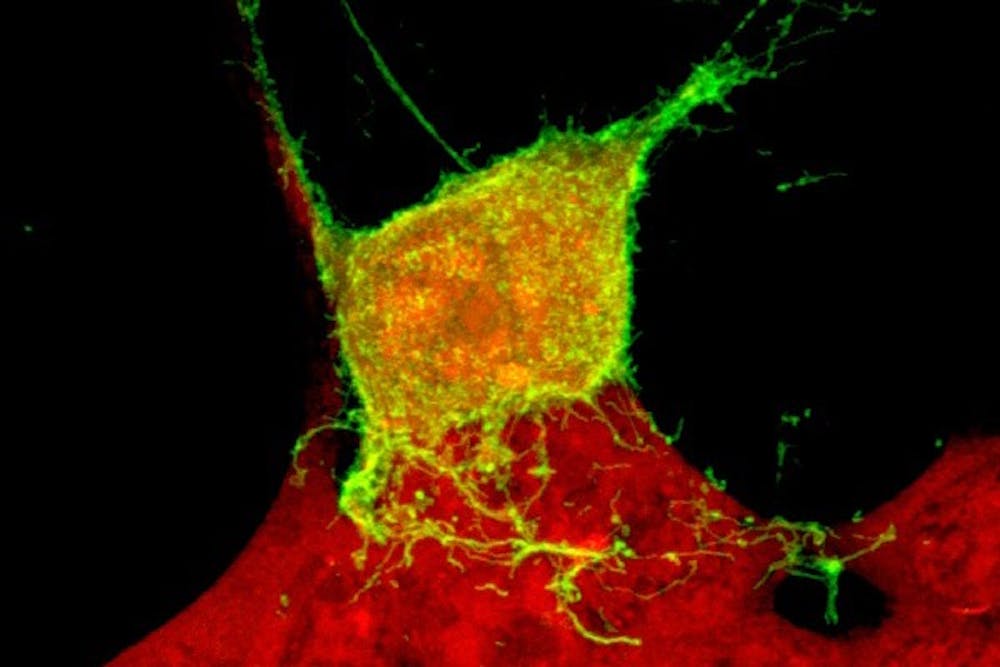The 2014 West African Ebola outbreak has killed more than 11,000 people, making it the deadliest outbreak of the virus in history — but researchers from the School of Veterinary Medicine have developed a means of stopping the spread of such a virus.
Vet School professors Bruce Freedman and Ronald Harty of the Department of Pathobiology have been working with a team of researchers and the U.S. Army Medical Research Institute of Infectious Diseases to find a method of blocking calcium-signaling pathways to prevent viruses like Ebola from exiting a host cell and spreading.
“We are not trying to boost the immune system,” Freedman said. “What we are trying to do is block the ability of the virus to utilize essential pathways in our own cells so the immune system has more time to ramp up and kill the virus itself.”
The Ebola virus works quickly through the body, which creates difficulties for the immune system to establish an effective response. Viruses like Ebola take over proteins in a host cell to complete its life cycle and reproduce.
Freedman and Harty focus on developing drugs that interfere with the host proteins. Instead of working directly with the dangerous Ebola virus, the Penn scientists worked with non-infectious viral-like particles that have similar matrix proteins and bud in a similar form to Ebola.
In viruses, calcium signaling is an important messenger to many cell processes. Freedman and Harty found that the virus matrix proteins generated significant increases in levels of calcium. The researchers were able to block the calcium messaging by introducing a mutated gene called ORAI1 into the host cell to conceal the calcium channel, inhibiting the virus from exiting the host cell and spreading to other cells.
The immediate next step for Freedman and Harty is to test the prevention of calcium signaling in mice. The end goal for the researchers is to develop an anti-viral drug with their new company, Intervir Therapeutics, which is funded by Penn.
“The big advantage of using host-orienting therapeutics is that it is more unlikely that the virus can develop a resistance or overcome the effectiveness to the drug, a problem that is often common in HIV therapies,” Harty said.
This work creates an opportunity to hopefully design a potential broad-spectrum drug that could work as a therapy for a wide variety of deadly viral infections.
“This is broad spectrum, similar to antibacterial drugs like penicillin that can kill 30 different kinds of bacteria,” Freedman said. “We are not targeting a specific pathogen, like Ebola. Theoretically the antiviral therapies should be able to block any virus that utilizes this pathway to replicate.”









